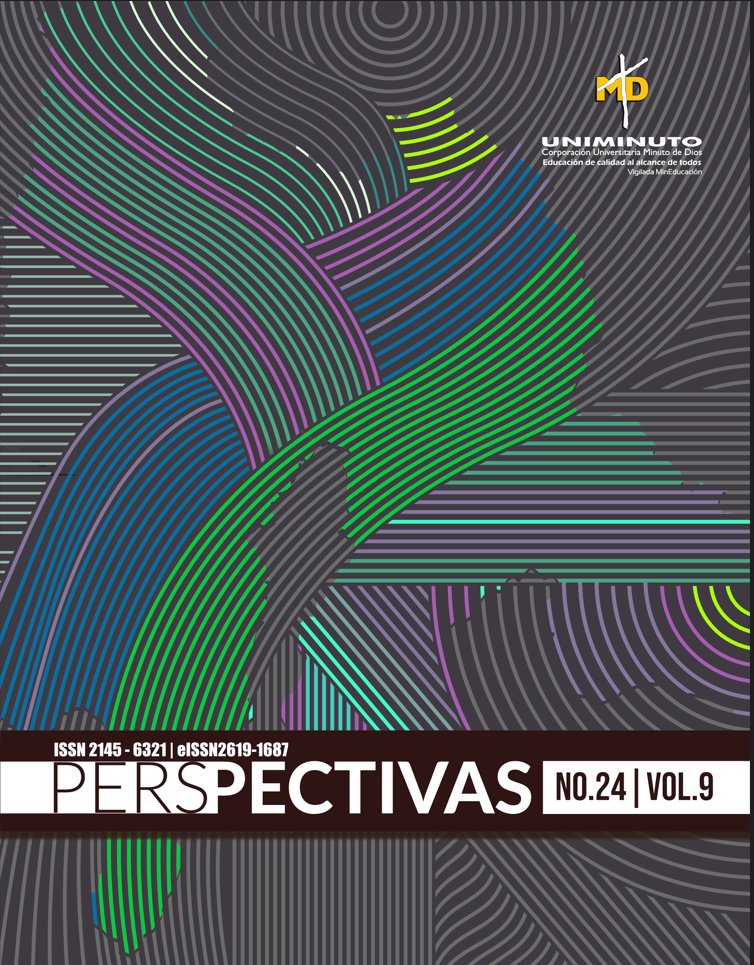The praxeological approach: the ethical, the aesthetic and the political
Article Sidebar
How to Cite
Altmetrics
Article Details

This work is licensed under a Creative Commons Attribution 4.0 International License.
Main Article Content
Abstract
This reflective article explores three concepts linked to the praxeological approach, developed by the philosopher Carlos Germán Juliao Vargas, which account for its complexity as a method, approach, and life project: the ethical, the aesthetic and the political; For this purpose, he takes, as an illuminating example, the “praxeological workshop”. The epistemic perspective about which this text is thought about is developed in a framework of transdisciplinarity, reflective indocility and complex thinking. The development of the article has been proposed in three sections: (a) Ethics in the praxeological approach; (b praxeology as an aesthetic of existence; (c) the political implications of the praxeological approach. The reflection leads to the fact that praxeology seems to have a wide spectrum that deserves further investigation, from the interdisciplinary perspective, to continue discovering its scope (given its function multivalent); in other words, there is a sensitive complexity from which it is possible to demonstrate other themes, concepts, forms, mechanisms, and tools since it is an approach, model and method still in the constructive process.
References
Agamben, G. (2011). ¿Qué es un dispositivo? Sociológica (México), 26(73), 249-264. https://www.scielo.org.mx/pdf/soc/v26n73/v26n73a10.pdf
Arendt, H., & Kohn, J. (2008). La promesa de la política (pp. 131-224). Paidós.
Barquero, A. (2003). Ética profesional. San José, Costa Rica. EUNED.
Bourdieu, P. (2003). El oficio de científico: ciencia de la ciencia y reflexividad. Anagrama.
Cortina, A. (2007). “Jóvenes, valores y sociedad siglo XXI”. Proyecto, 63, 27-38. https://dialnet.unirioja.es/metricas/documentos/ARTREV/2576256
Cortina, A. (2013). ¿Para qué sirve realmente la ética? Paidós.
Cubides, H. (2007) Foucault y el sujeto político. Ética del cuidado de sí. Siglo del Hombre.
De Sousa, B. (2011). Epistemologías del sur. Utopía y praxis latinoamericana, 16 (54):17-39. https://www.boaventuradesousasantos.pt/media/EpistemologiasDelSur_Utopia%20y%20Praxis%20Latinoamericana_2011.pdf
Deleuze, G. (2014). Foucault y el Poder. Errata Naturae.
Deleuze, G., Guattari, P. F. (2004). Mil mesetas. Pre-textos.
Duque, M., Ocampo, L., & Velásquez, G. (2013). Resistencia al cambio en organizaciones modernas. Scientia et technica, 18(1), 149-157. https://www.redalyc.org/pdf/849/84927487022.pdf
Foucault, M. (1982). Las palabras y las cosas: una arqueología de las ciencias humanas. Siglo XXI.
Foucault, M. (1992): Microfìsica del poder. La Piqueta.
Freud, S. (2014). Group Psychology and the Analysis of the Ego. Read Books Ltd.
Geertz, C. (2001). La interpretación de las culturas (Vol. 1). Gedisa.
Grossberg, L. (2016). Los estudios culturales como contextualismo radical [1]. Intervenciones en estudios culturales, 2(3). http://portal.amelica.org/ameli/journal/53/5317003/html/
Grossberg, L., Nelson, C. y Treichler, P. (Eds.). (2013). Estudios culturales. Rutledge.
Hall, S. (2006). “Estudios culturales: dos paradigmas”. Revista Colombiana de Sociología 27: 233-254. https://www.redalyc.org/pdf/5515/551556292010.pdf
Hall, S. (2010). “Sin garantías”. Trayectorias y problemáticas en estudios culturales, 2. https://repositorio.uasb.edu.ec/bitstream/10644/7187/1/Hall%20S-Sin%20garantias.pdf
Juliao Vargas, C. G (2002). La praxeología: una teoría de la práctica. Uniminuto. https://repository.uniminuto.edu/handle/10656/649
Juliao Vargas, C. G. (2011). El enfoque praxeológico. Uniminuto. https://repository.uniminuto.edu/handle/10656/1446
Juliao Vargas, C.G. (2014). Una Pedagogía Praxeológica. Uniminuto. https://repository.uniminuto.edu/handle/10656/3030
Juliao Vargas, C. G. (2017a). La cuestión del método en pedagogía praxeológica. Uniminuto. https://repository.uniminuto.edu/handle/10656/5087
Juliao Vargas, C. G. (2017b). Epistemología, pedagogía y praxeología: relaciones complejas. Uniminuto. https://repository.uniminuto.edu/handle/10656/4455
Juliao Vargas, C. G. (2020). “La investigación praxeológica: un enfoque alternativo”. Praxis Pedagógica, 20(26), 117-148. https://revistas.uniminuto.edu/index.php/praxis/article/view/2414
Kant, E. (1991). Pedagogía. Akal.
Morin, E. (1995). El pensamiento complejo. Gedisa.
Morin, E., & Ruíz, J. (2005). Con Edgar Morin, por un pensamiento complejo (Vol. 22). Ediciones AKAL.
Nicolescu, B. (2002). Manifesto of transdisciplinarity. Suny Press.
Nicolescu, B., & Núñez-Dentin, N. (2017). La transdisciplinariedad. Transdisciplinary Human Education, 1(1), 100-224. http://the.redcicue.com/index.php/the/article/view/120
Nietzsche, F. (2022). Las obras completas de Friedrich Nietzsche. DigiCat.
Restrepo, J. D. (2009). Ética en la empresa periodística. Revista de comunicación, 8(1), 84-94. https://revistadecomunicacion.com/article/view/2798
Zarta Rojas, F. A. (2022). El rizoma literario: lo performativo del sujeto. Enunciación, 27(1), 45-55. https://www.researchgate.net/publication/360988571_El_rizoma_literario_lo_performativo_del_sujeto
Zarta Rojas, F. A., & Juliao Vargas, C. G. (2021). Pandemia y salud mental en la nueva realidad. Hojas De El Bosque, 8(13). https://revistas.unbosque.edu.co/index.php/HEB/article/view/pandemia-nueva-realidad

